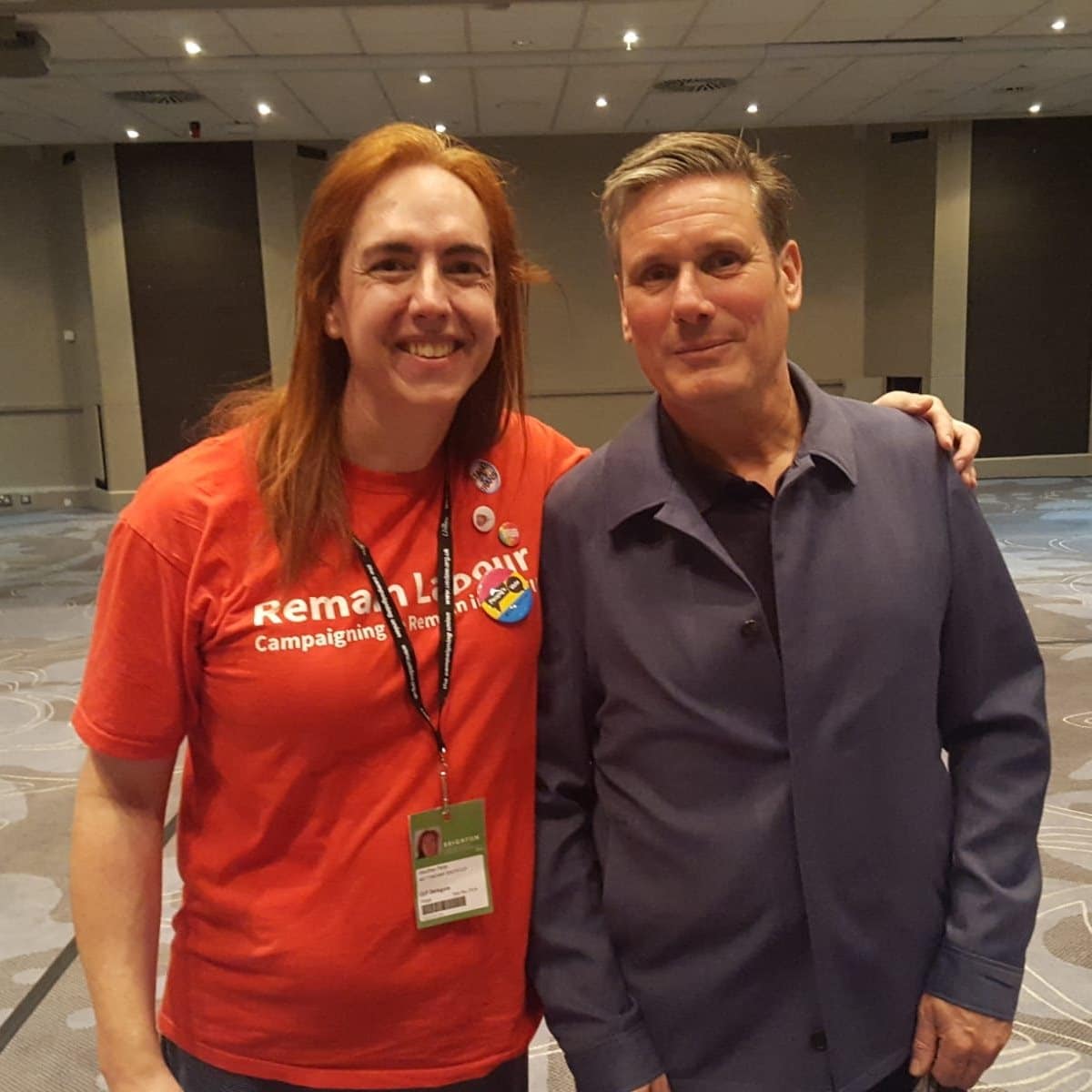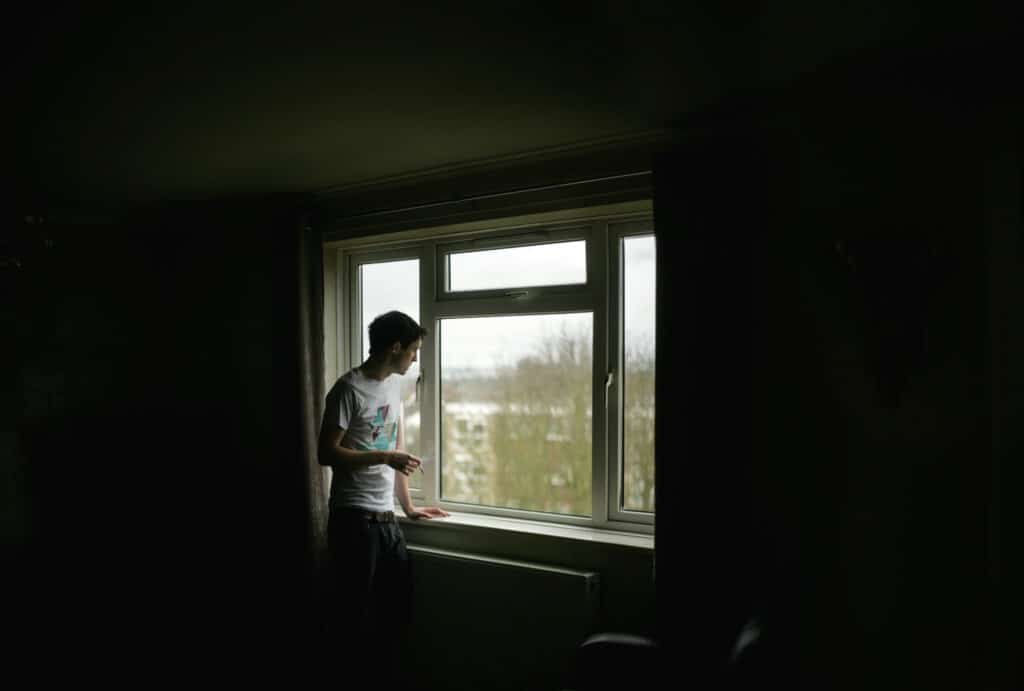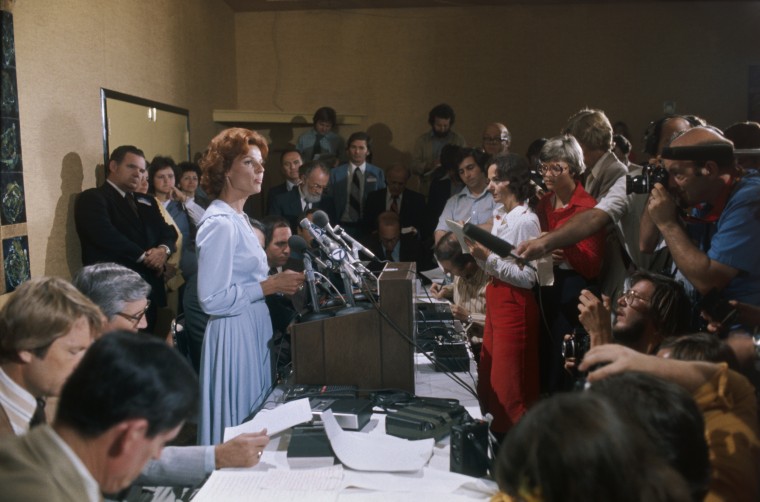Tough Territory for Transgender People in the Middle East and North Africa
Transgender people, whose assigned gender at birth does not match their gender identity, face a grim reality in much of the Middle East and North Africa region, including daunting obstacles to legal gender recognition.
To get a better sense of these obstacles, I reviewed existing legal frameworks and case law, and conducted interviews in Egypt, Lebanon, and Tunisia, talking to activists and experts as well as transgender people about their experiences. Building on existing research on violence and discrimination against transgender people in the region, this analysis summarizes what I found.
Legal gender recognition for transgender people refers to the official recognition of their gender identity—the gender that they are most comfortable with expressing when given a choice—including their ability to change their name and gender marker on identification documents to reflect their gender identity. When denied legal recognition of their gender identity, transgender people are systemically marginalized, and their existence based on their gender identity is undermined.
Egypt, Lebanon, and Tunisia lack clear avenues for transgender people to obtain legal gender recognition, increasing their vulnerability to abuses by security forces such as arbitrary arrests, and to systemic discrimination in healthcare, housing, and employment. Medical and judicial authorities in these countries arbitrarily restrict access to legal gender recognition based on misinformed perspectives that see transgender identities as pathological.
In the absence of the necessary legal and regulatory frameworks to grant such recognition, judicial authorities in the three countries are tasked with reviewing individual gender recognition applications submitted by transgender people. Laden with obstacles, this process is protracted (it can take from three to ten years), expensive, and inaccessible to most transgender people. Due to the absence of legislative frameworks for granting legal gender recognition, it is up to individual judges in each country to make decisions based on their interpretation of the law. Judicial authorities often require transgender applicants to have completed all surgical and hormonal interventions before reviewing their cases. The judicial forensic medical authorities are often tasked with examining transgender applicants to ensure they meet this requirement. Transgender people face significant obstacles to receiving gender-affirming healthcare in the three countries.
Although none of the three countries criminalize transgender identity, security forces often conflate it with sexual orientation, perceiving transgender women as gay men and transgender men as lesbian women, who are prosecuted under various laws. The discrepancy between transgender people’s official documents and gender expression makes them vulnerable to police abuse, including harassment and arbitrary arrests. Transgender detainees in Egypt and Lebanon are often placed in cells that do not reflect their gender identity, or in solitary confinement for lack of alternatives. Transgender people in such facilities endure ill-treatment that can amount to torture, such as forced anal examinations, a discredited practice to “prove” same-sex activity.
The separate sections below on Egypt, Lebanon, and Tunisia summarize obstacles to legal gender recognition in each country, drawing on review of laws and legal cases, three fatwas (religious rulings) on legal gender recognition, and interviews conducted in 2021 with transgender people, activists, and legal experts.
I interviewed 16 transgender people: five from Egypt, six from Lebanon, and five from Tunisia–four of whom are activists. I also interviewed two legal experts from Egypt, a lawyer from Lebanon, and a lawyer from Tunisia. I analyzed four judicial cases from Egypt, two from Tunisia, and two from Lebanon, as well as three fatwas (religious rulings) on legal gender recognition. I refer to some of those interviewed by pseudonyms for their protection.
All the quotes included below are from my interviews. The individual accounts and comments do not purport to be representative of all transgender people in the three countries, but are offered as illustrations of common issues transgender people face, and are consistent with what has been reported elsewhere.
EGYPT
Transgender people in Egypt face a lack of legislative or procedural frameworks allowing them to obtain gender-affirming healthcare and legal gender recognition. In 2003, Egypt’s Health Ministry established a review committee within the Medical Syndicate for people wanting “sex reassignment surgery.” However, the volunteer committee met irregularly, had no legal authority, and was required to include a representative from Egypt’s Islamic oversight body, Dar Al Ifta.
In 2020, the head of the committee indicated that “between 2014 and 2017, 87 cases had been approved for ‘physical’ reasons but none based on ‘gender identity disorder’.” This medical position is influenced by the Islamic Shari’a, as according to some interpretations, there is a distinction between “sex change,” referring to gender-affirming surgery for transgender people, and “sex reassignment,” referring to surgery on people with intersex characteristics, with only the latter permitted under such interpretations.
In the absence of government-sponsored gender-affirming healthcare, a dangerous and expensive underground medical industry has emerged resulting in unsupervised treatment in unlicensed centers, without avenues for accountability. Many transgender people in Egypt who seek surgery are left with no choice but to take this risk. On August 26, 2021, Ezz Eldin, a 26-year-old Egyptian transgender man, bled to death after he was prematurely discharged following a surgery in an underground clinic to affirm his gender.
Salma, a 27-year-old Egyptian transgender activist, said, “The Medical Syndicate’s sex reassignment committee stopped giving approvals, and transgender people who want to undergo surgeries had no choice but to do it in an underground hospital. Even before, Al-Azhar [Egypt’s religious authority] stood in the way of transgender people getting approval even if they had all the needed medical papers, as in their view only intersex people should undergo [sex reassignment surgery].”
Nada, a 28-year-old Egyptian transgender woman, spoke about her experience undergoing surgery in an underground clinic: “For these private doctors, it is nothing but a trade. They charged me around 7000 EGP [$445] for the first operation and the experience was very hard and painful for me. The doctors were not friendly, and I had to leave before I even recovered.”
The legislative vacuum when it comes to legal gender recognition in Egypt has led some judges to rely on principles of Islamic Shari’a to guide their judgments. An Egyptian administrative court stated in a 2016 case: “According to the principles of Islamic Shari’a, sex reassignment surgeries are allowed for intersex people. Sex change, on the other hand, for individuals who suffer from gender identity disorder (GID), is best treated through psychiatric measures, not surgeries or hormonal intervention.” In that same ruling, which rejected a transgender man’s request to change his papers, the court stated: “Personal freedoms are not absolute and are subjected to principles of Islamic Shari’a and Egyptian traditional social values. The plaintiff broke those values and Shari’a by undergoing a sex change operation to treat their psychiatric illness.”
While no laws in Egypt criminalize being transgender, security agencies often resort to laws criminalizing “public indecency” and “sodomy” to arrest and harass transgender people. In detention, transgender people are often placed in cells that do not correspond to their gender identity, and are subjected to ill-treatment that can amount to torture, including sexual violence by security forces and other detainees, being confined in solitary cells for extended periods, and forced anal examinations.
Masha, a 34-year-old transgender woman who was arrested in Egypt and sentenced in 2020 to three years for “inciting and practicing debauchery,” spoke of being confined in a makeshift solitary cell inside a police station in Cairo for almost a year: “I had to endure endless abuse by the police. I was raped multiple times. For the police, we deserved to be raped as part of the punishment.”
LEBANON
Lebanon has no official programs that provide gender-affirming healthcare to transgender people, and lacks a clear legal pathway for gender recognition, leaving the decision to the discretion of individual judges.
A Lebanese civil court stated in a 1992 judgment: “To allow the applicant legal gender recognition would lead to a disturbance in the fabric of the society. For the greater good of the society, we cannot allow sex change for a psychiatric reason, as we do not consider it as a necessity.”
In January 2016, an appeals court in Lebanon delivered a ruling allowing a transgender man to change his name and gender marker on his identity documents, overruling a lower court and compelling the government to change the papers. The court found that gender-affirming surgery should not be a prerequisite to gender identity recognition. Despite this positive precedent, procedural obstacles—including high fees, reluctance to engage in protracted court proceedings, and lack of legal assistance—deters transgender people from seeking court rulings to change their gender markers.
Gender-affirming medical care is largely inaccessible in Lebanon. Nasser, a 36-year-old Lebanese transgender man, told me about the challenges he faced when seeking gender-affirming care and legal gender recognition. At 24, he consulted with a psychiatrist at the American University of Beirut Medical Center (AUBMC), who diagnosed him with gender dysphoria after six months of treatment. The following year, he was referred to another doctor to start receiving hormone replacement therapy. During this period, Nasser said, he was refused jobs due to the discrepancy between his official documents and gender expression, which forced him to spend all his savings and borrow money from friends to pay for his treatment.
Nasser started the legal gender recognition process in 2016 in Lebanon. He said judicial authorities required gender-affirming surgery as a precondition to legal gender recognition, and he ended up traveling to Thailand, where he paid $13,000 to undergo three operations at Yanhee Hospital in Bangkok. In addition, Nasser has paid $7,000 in legal fees since he started the legal recognition process.
Nasser also spoke about the impact of the current economic crisis in Lebanon on the cost of hormonal treatment: “Medication shortages diminished the hormones supply in pharmacies, and the price rose from 3000 Lebanese pounds ($1.96) for one shot to $100 for three shots.” Nasser said he faced harassment from the judicial forensic doctor appointed by the court to examine him. “The forensic doctor was very rude, transphobic, and had no understanding of my identity. He asked me inappropriate questions like, ‘Did you sleep with a man before?’ and ‘How do you think you will be able to give your future wife sexual pleasure?’”
Despite the court ruling in his favor in 2021, allowing him to change his documents, Nasser said he still awaits the decision’s implementation by the Lebanese authorities.
Mona, a 37-year-old Lebanese transgender woman, also emphasized the high costs of surgery necessary for legal gender recognition: “I paid $3,500 for my top surgery [breast augmentation] with a plastic surgeon in Lebanon. The sex-change operation is at least $16,000. I cannot afford that.”
Access to hormone treatment therapy is also limited in Lebanon and, even if transgender people can get the therapy, it remains difficult to find proper medical supervision for the necessary aftercare. This has led some transgender people to access hormone therapy informally, which in some cases results in medical complications.
Souad, a 27-year-old Lebanese transgender woman, said, “I took hormones on my own and my leg got infected because it wasn’t under [medical supervision], so I had to go to the hospital for months and I was really humiliated. They wouldn’t admit me to the hospital at first because of the mismatch between my ID and gender expression, they didn’t even let me enter the building, until I called my uncle, who gave them money to let me enter.”
Transgender people spoke repeatedly about the limitations in accessing basic services that they faced due to the discrepancy between their official documents and their gender expression. Mona described her experience with housing in 2019: “When [the landlords] found out that I’m transgender, they refused [to lease me the house]. One landlord told me I can rent on someone else’s ID if I have a brother, but not mine.”
Transgender women also face violence by security forces in Lebanon due to these discrepancies. Diana, a 27-year-old Lebanese transgender woman, said that the Internal Security Forces (ISF) arbitrarily detained her in 2018 because of her gender expression and then ill-treated her in detention and forced her to sign a confession:
“I was on my way home, and an [ISF] officer stopped me and asked where I was going. I told him I lived here, he said that was a lie because he hadn’t seen me before. Then he looked at me and said, ‘Oh, you’re also a faggot.’ I cursed him out and said it was none of his business and that I was indeed a ‘faggot.’ So, he reported that I was ‘coming onto him [to get] him to sleep with me.’ They summoned me for an investigation and tried to coerce me into signing a paper that says I seduced the officer. They kept scaring me with the taser and threatened to electro-shock me if I didn’t sign. They interrogated me from 6 a.m. to 7 p.m., and I was forced to sign the paper so they would let me leave. After three months, I was referred to military court, where I was convicted and charged with ‘assaulting an officer,’ and I had to pay a fine of 300,000 Lebanese pounds. [$200].”
TUNISIA
In Tunisia, transgender people who wish to receive gender-affirming healthcare often travel abroad, as both governmental and private medical sectors do not provide them with the healthcare they need. Moreover, there is no clear process to obtain legal gender recognition.
According to a 2018 study by Heinrich-Böll-Stiftung, the Tunisian judiciary systematically refuses requests to change gender markers in cases in which people have undergone sex reassignment surgery because of gender identity disorder, citing various sources from the Qur’an as well as Tunisia’s cultural positioning in the Arab-Muslim world as grounds for their decisions. The same study indicates that the judiciary is more inclined to allow legal gender recognition for intersex people than for transgender people.
Judicial authorities’ reliance on the misconceived pathologization of transgender identities forces transgender people who seek legal recognition of their gender to endure humiliating medical examinations by judicial forensic authorities. Judicial authorities also require transgender people to undergo all surgical and hormonal treatments before reviewing their applications.
In 2018, a Tunisian court granted legal gender recognition to a transgender man who received gender-affirming care in Germany, overruling a lower court’s verdict. The court cited the man’s gender identity disorder diagnosis as a reason for its decision, after consulting psychiatrists and forensic doctors to determine whether the plaintiff underwent the gender-affirming care out of medical necessity.
Surgery options are more limited in Tunisia. Interviewed transgender people told me they had to travel abroad to receive the medical care they needed. Ahmed El-Tounsi, a 37-year-old Tunisian transgender activist from the Tunis-based transgender group Outcasts said, “There are no doctors who can do the surgeries for us here, maybe some plastic surgeons would do the top surgery [breast augmentation or removal], but it is very costly. I traveled to Egypt in 2015 after some friends there connected me with doctors who did the operation for me in their private clinic.”
Abusive practices also limit transgender people’s access to other forms of healthcare. Several interviewees spoke about being denied general medical care or being harassed by medical professionals because of their identity. Nader, a 34-year-old transgender man from Tunisia, said: “When I get sick, I would rather sleep it away than go to a hospital. Every time I go I either get mocked or cursed at and often do not even receive the treatment I need.”
Discrimination arising from a lack of consistency between the identification documents and gender identity of transgender individuals impacts every aspect of their lives, including in accessing housing and employment. Nader said, “For me, the biggest problem is the mismatch between my papers and my gender identity. I cannot get a job, and this impacts all the other aspects of my life.” He added, “The basis of our problems is the lack of economic empowerment. If we get jobs, we can make money and then undergo the operations or travel abroad.”
Conclusion and Recommendations
The policies and practices outlined above discriminate against transgender people in the three examined countries. This discrimination violates their fundamental rights, including their right to healthcare, education, employment, enjoyment of life, bodily integrity, protection against inhumane and degrading treatment and torture, as well as their right to nondiscrimination and protection under the law.
Egypt, Lebanon, and Tunisia are state parties to international human rights treaties, including the International Covenant on Civil and Political Rights (ICCPR), and the International Covenant on Economic, Social, and Cultural Rights (ICESCR), which emphasize the protection of human rights regardless of gender identity or sexual orientation. The UN Human Rights Committee, which monitors compliance with the ICCPR, and the Committee on Economic, Social and Cultural Rights have made clear that countries are prohibited from discriminating based on sexual orientation or gender identity in upholding the rights set forth in the respective treaties. CESCR General Comment No 14 states that the right to healthcare is fundamental and calls on member states to ensure access to healthcare without discrimination. CESCR General Comment No 4 emphasizes the right to adequate and safe housing.
Egypt and Tunisia are also obligated under the African Charter of Human Rights to protect sexual and gender minorities as stipulated in the African Commission on Human and People’s Rights’ resolution 275 in 2014, which condemns systematic attacks and human rights violations based on gender identity and sexual orientation and states that governments should pass new laws to address the violations.
The authorities in Egypt, Lebanon, and Tunisia should address the needs of their transgender citizens as equal with those of other citizens before the law. Transgender people have the right to access medical care and legal gender recognition without fear of violence, discrimination, or loss of livelihood.
The findings highlight the need for the parliaments in Egypt, Lebanon, and in the case of Tunisia, when the suspended parliament returns to session, to introduce legislation that allows for name and gender marker change through a simple administrative procedure based on self-declaration. The countries should pass comprehensive anti-discrimination legislation, including on the basis of gender identity and sexual orientation.
The ministries of health and forensic medical authorities should ensure that gender-affirming healthcare is provided by the public healthcare system or, if not provided, ensure that the costs are covered or reimbursable under private and public health insurance systems.
In view of the documented violence transgender people face by security forces, the authorities in Egypt, Lebanon, and Tunisia should ensure that transgender people have equal access to legal protections and complaint mechanisms to report violations against them.










